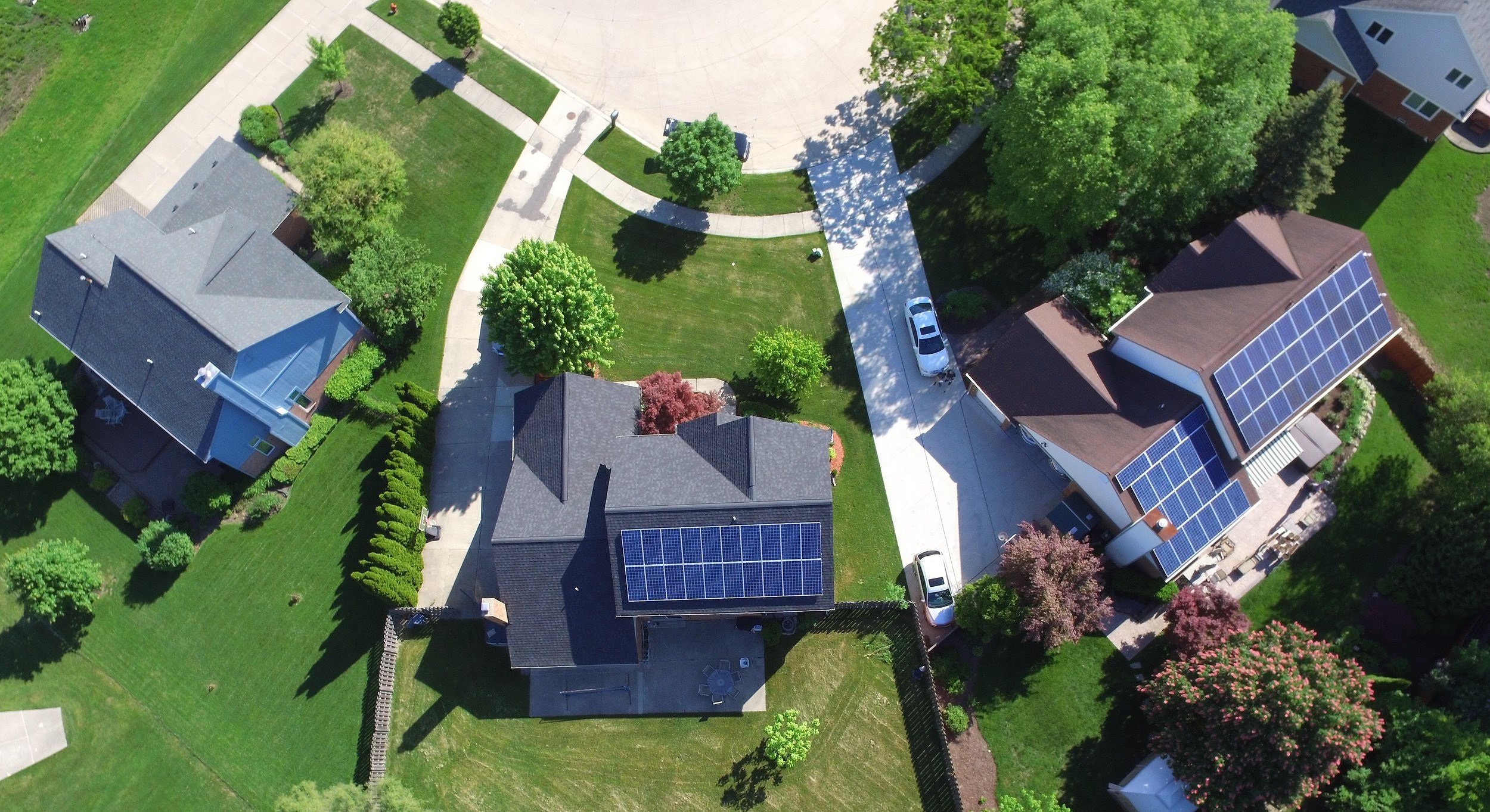We are Michigan’s trusted EV charging experts.
Many of our customers add an electrical vehicle charger to their solar system. This will future-proof your investment when you purchase an EV down the road.
If you already have an EV – even better. You can now be more self sufficient charging your car with solar power that you normally would export from the grid.
Need an EV Charger? Get a Quoteor call (313) 960-7900
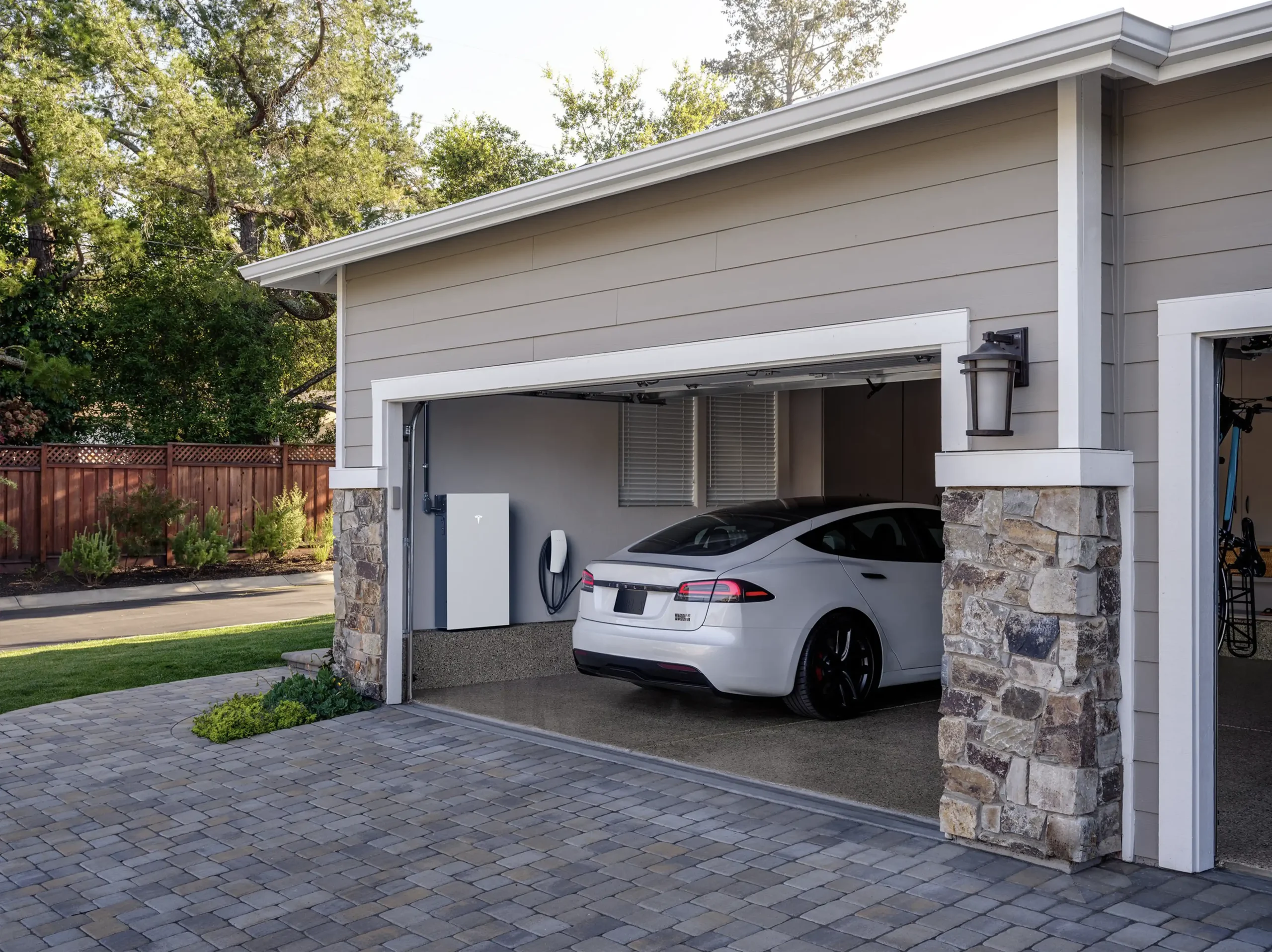
Types of EV Chargers That We Install
We specialize exclusively in Level 2 charger installations — the ideal choice for homeowners who want the best balance of charging speed, cost, and practicality for daily use.
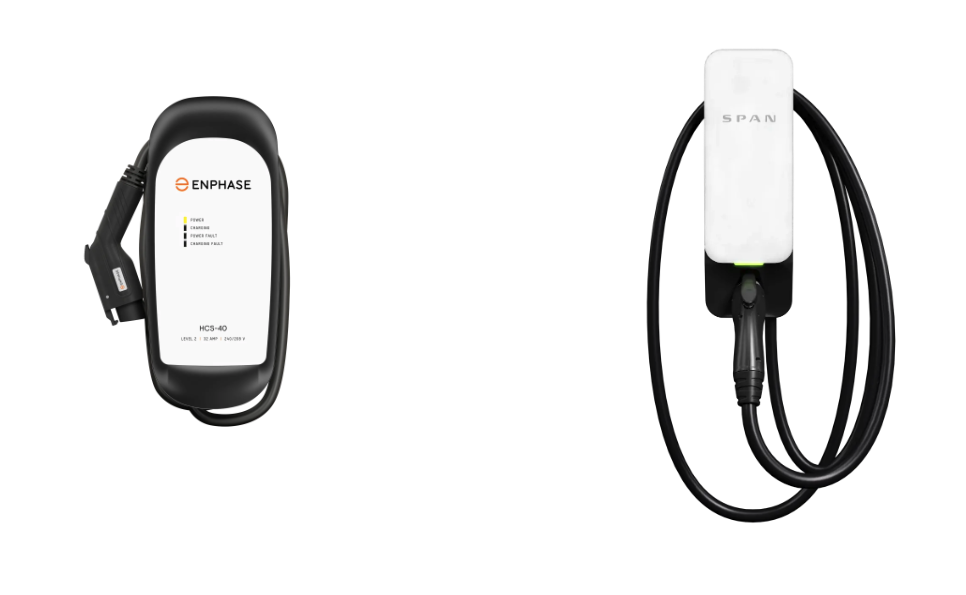
Level 1
Uses a standard 120V household outlet with the portable charger that comes with most EVs. This is the slowest charging option, typically adding 3-5 miles of range per hour of charging.
Professional installation is generally not needed, as these simply plug into an existing outlet.
Level 2
Requires a 240V electrical connection (like what powers dryers or ovens) and a dedicated charging station. This setup adds 15–40 miles of range per hour, making it the most popular and practical home charging solution.
We provide expert installation of Level 2 chargers tailored to your home’s electrical system.
DC Fast Charging (Level 3)
Designed for commercial or industrial use, these ultra-fast chargers deliver 100–200 miles of range in about 30 minutes but require specialized, high-voltage infrastructure not typically available or practical in residential settings.
We do not currently offer installation of Level 3 systems.
We are certified to work with all of the leading EV charger brands.
With Strawberry Solar, you don’t have to worry about researching every product or making the “right” choice on your own. Our team will evaluate your home, energy goals, and system requirements to determine which solution is the best fit. We’ll walk you through the options, explain what matters most, and help you make an informed decision without the overwhelm.
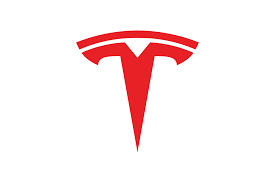
Tesla Powerwall
Integrate your EV charging with reliable backup power, allowing you to charge your vehicle even during grid outages while maximizing your energy independence.

SPAN EV Chargers
Revolutionize your home electrical system with intelligent charging that monitors and optimizes your entire home’s energy usage through an intuitive smartphone app.
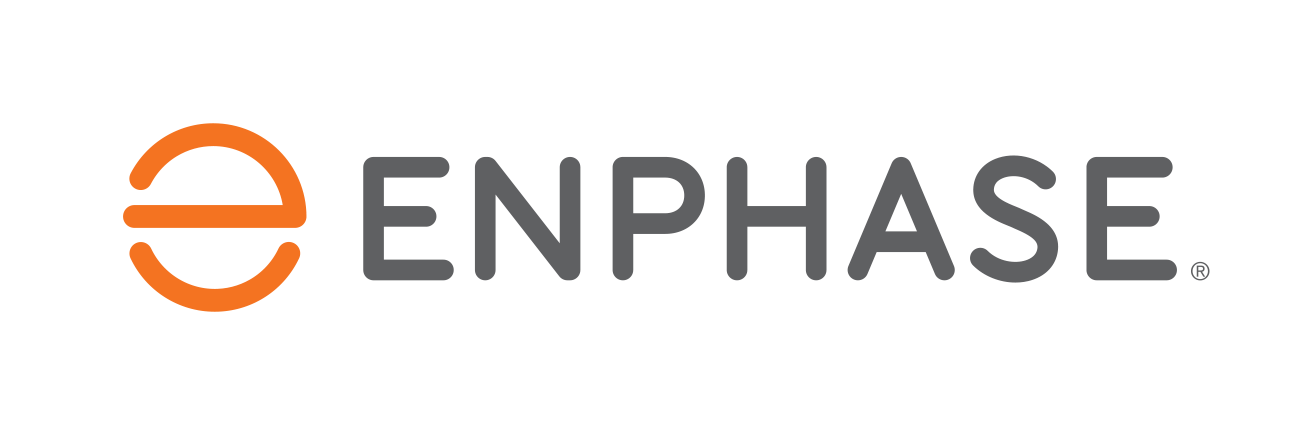
Enphase EV Chargers
Experience seamless integration between your solar system and EV charging with Enphase’s all-in-one solution that prioritizes clean energy first.

SolarEdge EV Chargers
Maximize solar utilization with SolarEdge’s solar-optimized charging station that automatically adjusts to use excess solar production for charging your vehicle.
Why install an EV charger in your home?
Having your own EV charger at home transforms electric vehicle ownership from a hassle into a convenience. Instead of relying on public stations, you enjoy the comfort and reliability of charging where you live, charging your EV directly from solar energy.
Benefits of Home EV Charging vs. Public Charging
- Convenience – Charge while you sleep without making special trips to public stations.
- Cost Savings – Home electricity rates are typically much lower than public charging fees—especially when combined with solar.
- Guaranteed Availability – Never worry about stations being occupied or out of service.
- Time Efficiency – No waiting in lines or driving out of your way to find a charging spot.
- Weather Protection – Charge in comfort without exposure to rain, snow, or extreme temperatures.
- Solar-Powered Charging – Maximize your savings and sustainability by charging your EV directly from your home solar system. Skip the grid and power your vehicle with clean, renewable energy—right from your roof.
- EV to Home (V2H) – Soon you’ll be able to use your EV to power essential appliances during outages, making your vehicle a backup energy source.
Why choose Strawberry Solar for your EV charger installation?
We have been installing solar systems and battery solutions for residential homes since 2010.
We are dedicated to delivering custom solar solutions that maximize savings, sustainability, and energy independence. We aren’t tied to a single offering or manufacturer, and we research and install what we feel is the best solution for our customers.
Having been in the solar industry for over 15 years, we’ve learned the importance of building strong relationships—not only with our dealers and manufacturers but also with our customers. These lasting connections allow us to provide expert knowledge, solution-based design, ongoing monitoring, attentive troubleshooting, and dedicated support.
Need an EV Charger? Get a Quoteor call (313) 960-7900
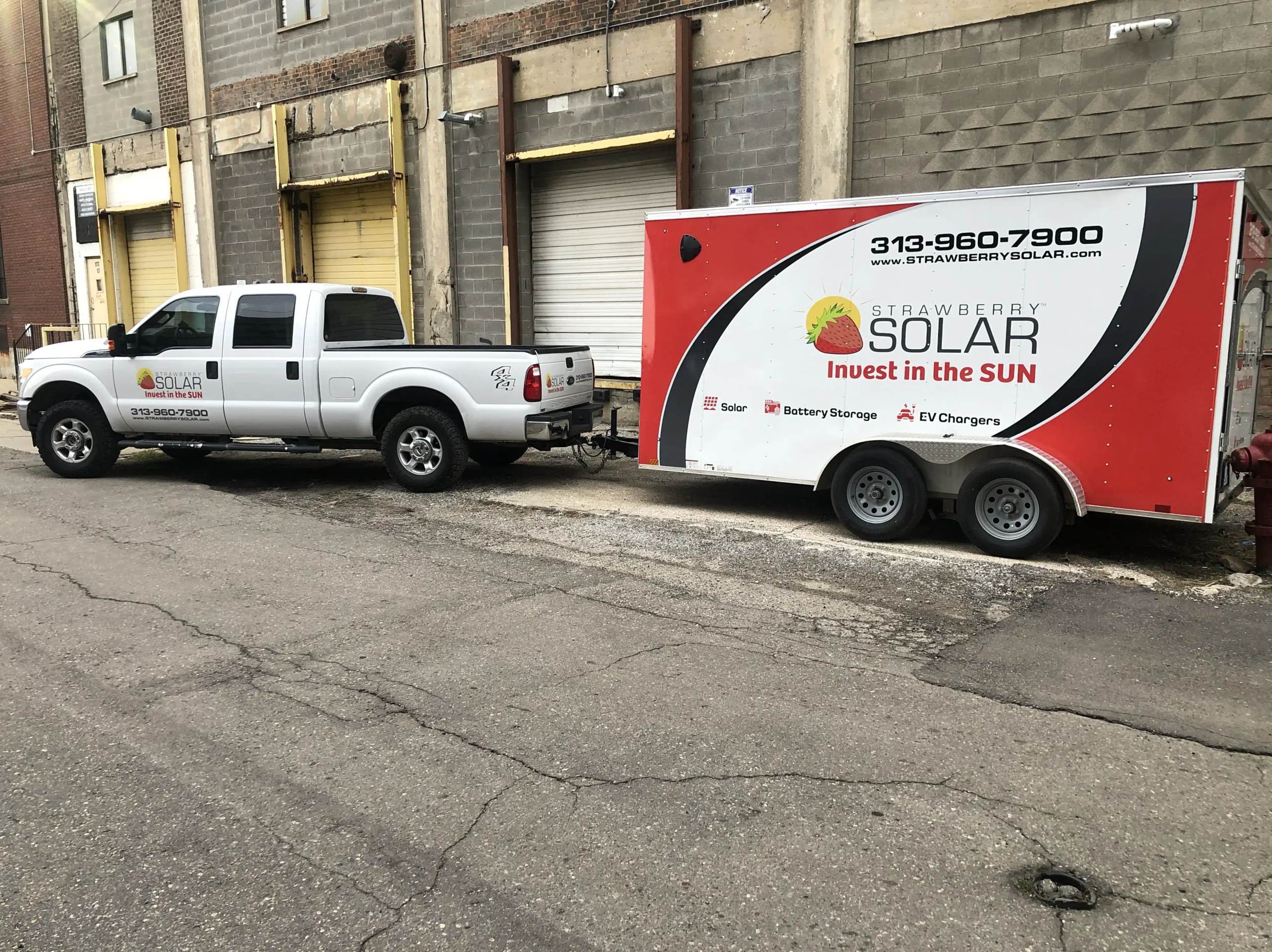
EV Charging FAQs
What is an EV charger?
EV chargers are used to charge the batteries in electric and hybrid vehicles. If you own or are thinking about purchasing an electric vehicle, you’ll need an EV charger at your home to ensure your car is always ready when you need it.
Does an EV charger take up a lot of space?
An EV charger takes up little space within a home. You’ll need a small wall area in your garage or near your driveway to mount the charger and cable, and room in your service panel for an additional dedicated 240V breaker.
How do they work?
An EV charger, also known as Electric Vehicle Supply Equipment (EVSE), safely delivers electrical current to your electric vehicle’s onboard charger, which in turn charges the vehicle’s battery. The EV charger communicates with the vehicle via the charging port to monitor the battery’s percentage of charge and ends the charging session when the batteries are fully charged.
Can I leave my EV unattended while charging?
Yes, charging stations are designed to halt the flow of electricity to the vehicle once it is fully charged. Since the electricity transfer automatically stops, you can leave your vehicle plugged in unattended without any issues.
Should I install my EV charger inside or outside?
It’s generally best to install your EV charger inside your garage. If you don’t have a garage, you can install it under a carport or another covered area to shield it from bad weather. While most chargers are designed to handle all weather conditions, indoor installation offers extra protection and reduces potential issues.
What are the different levels of EV charging?
Level 1 uses a standard 120-volt outlet, charging at 2 to 5 miles of range per hour. Level 2 uses a 240-volt outlet with a rate of 10 to 60 miles of ranger per hour. Level 3, used only for commercial purposes, uses high-voltage direct current for a rate of up to 90 miles of range in a half-hour.

